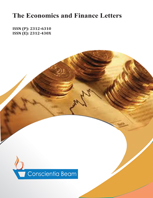The Effect of Work-Life Balance on Accounting Ethics
DOI:
https://doi.org/10.18488/journal.29.2018.51.1.11Abstract
Accounting professionals work in a stressful environment where their social life might have effect on work performance and unethical behavior. For this study, a survey is conducted for members of Istanbul Chamber of Certified Accountants, Turkey. The number of respondents is 491. The methodology used in the research is a multiple regression. The research questions are whether there is an effect of work-life balance on ethical behavior at work and if the work life balance and accounting ethics differentiate based on demographic factors for the respondents. The main objectives of the research are to test the relationship, and analyze four different independent variables of work life balance to find out whether they contribute to accounting ethics. Other objectives of the research are testing the differentiation of work life balance and accounting ethics based on gender, age, education and marital status. The main hypothesis is that there is a relationship between accounting ethics and work life balance. Based on the results, the main hypothesis is statistically accepted.

